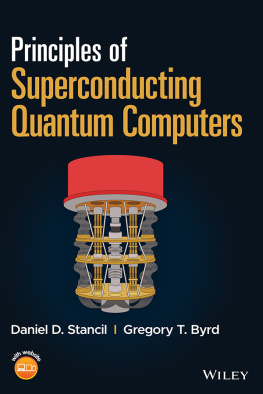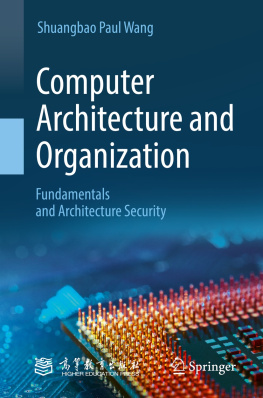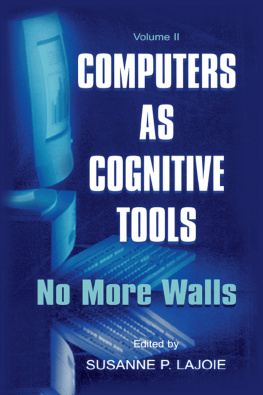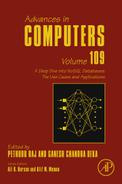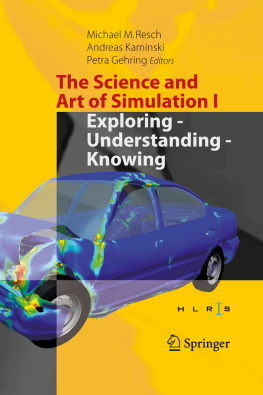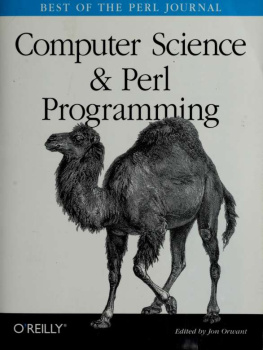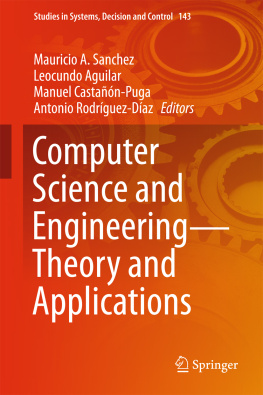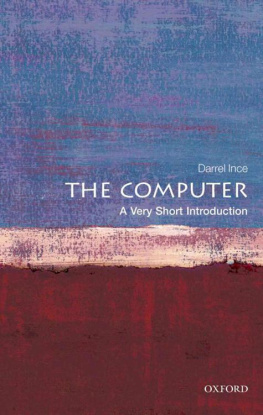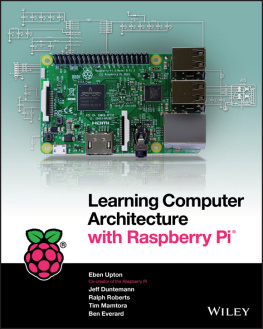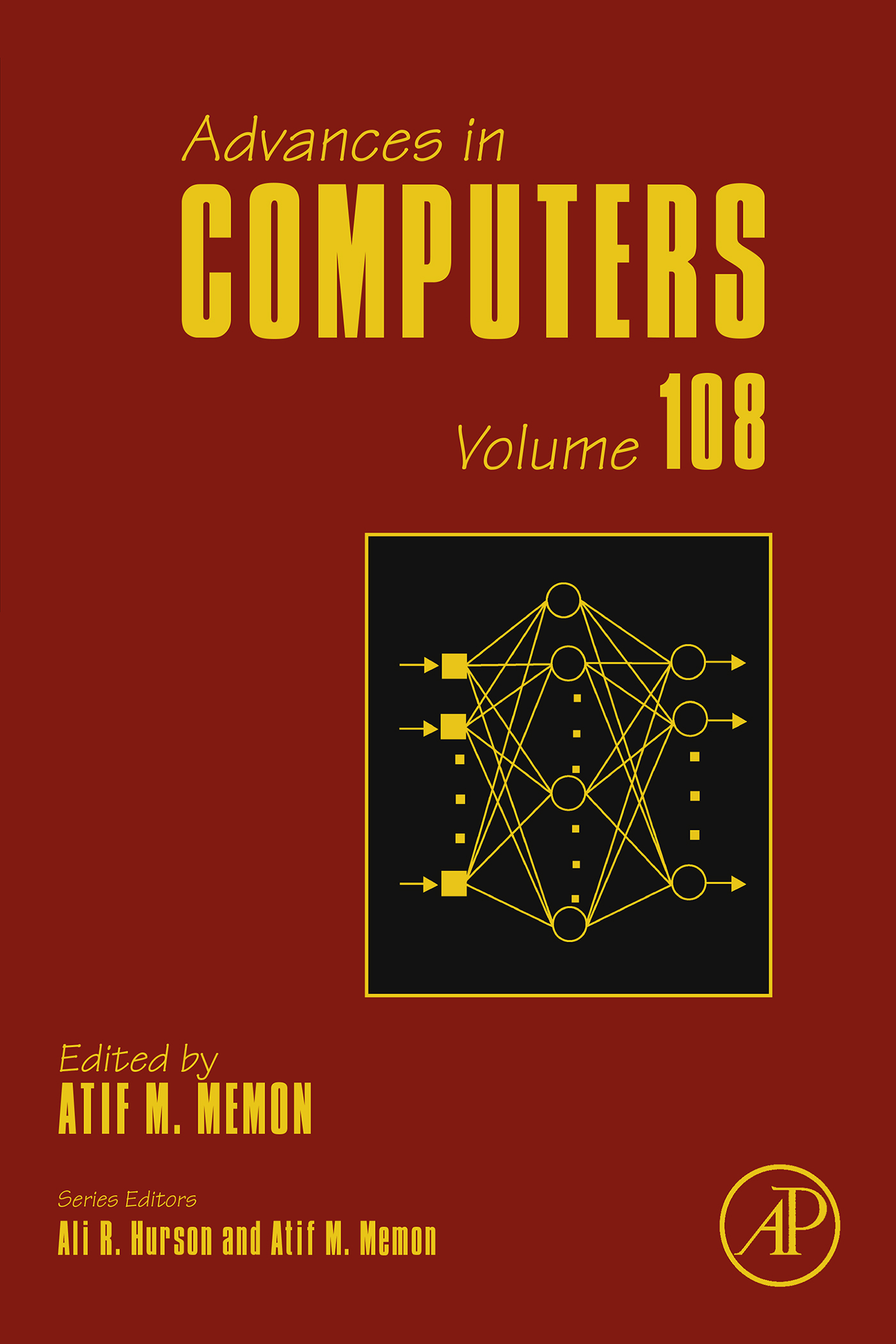Copyright
Preface
Prof. Atif M. Memon Ph.D , College Park, MD, United States
This volume of Advances in Computers is the 108th in this series. This series, which has been continuously published since 1960, presents in each volume four to seven chapters describing new developments in software, hardware, or uses of computers. For each volume, I invite leaders in their respective fields of computing to contribute a chapter about recent advances.
Volume 108 focuses on five topics. In , entitled Model-Based Testing for Internet of Things Systems, authors Ahmad et al. posit that the Internet of Things (IoT) has become a means of innovation and transformation. Applications extend to a large number of domains, such as smart cities, smart homes, and healthcare. The Gartner Group estimates an increase up to 21 billion connected things by 2020. The large span of things introduces problematic aspects, such as interoperability due to the heterogeneity of communication protocols and the lack of a globally accepted standard. The large span of usages introduces problems regarding secure deployments and scalability of the network over large-scale infrastructures. The chapter describes the challenges for IoT testing, includes a state-of-the-art testing of IoT systems using models, and presents a Model-Based-Testing-As-A-Service approach to respond to its challenges through demonstrations with real use cases.
In , entitled Advances in Software Model Checking, authors Siddiqui et al. observe that society is becoming increasingly dependent on software which results in an increasing cost of software malfunction. At the same time, software is getting increasingly complex and testing and verification are becoming harder. Software model checking is a set of techniques to automatically check properties in a model of the software. The properties can be written in specialized languages or be embedded in software in the form of exceptions or assertions. The model can be explicitly provided in a specification language, can be derived from the software system, or the software system itself can be used as a model. Software model checkers check the given properties in a large number of states of the model. If a model checker is able to verify a property on all model states, it is proven that the property holds and the model checker works like a theorem prover. If a model checker is unable to verify a property on all model states, the model checker is still an efficient automated testing technique. This chapter discusses advances in software model checking and focuses on techniques that use the software as its model and embedded exceptions or assertions as the properties to be verified. Such techniques are most likely to be widespread in the software industry in the coming decade due to their minimal overhead on the programmer and due to recent advances in research making these techniques scale.
, Emerging Software Testing Technologies, by Lonetti et al., provides a comprehensive overview of emerging software testing technologies. Beyond the basic concepts of software testing, the chapter addresses prominent test case generation approaches and focuses on more relevant challenges of testing activity as well as its role in recent development processes. An emphasis is also given to testing solutions tailored to the specific needs of emerging application domains. Software testing encompasses a variety of activities along the software development process and may consume a large part of the effort required for producing software. It represents a key aspect to assess the adequate functional and nonfunctional software behavior aiming to prevent and remedy malfunctions. The increasing complexity and heterogeneity of software pose many challenges to the development of testing strategies and tools.
In , Optimizing the Symbolic Execution of Evolving Rhapsody Statecharts, authors Khalil and Dingel present two optimization techniques to direct successive runs of symbolic execution toward the impacted parts of an evolving state machine model using memoization (MSE) and dependency analysis (DSE), respectively. Model-driven engineering (MDE) is an iterative and incremental software development process. Supporting the analysis and the verification of software systems developed following the MDE paradigm requires to adopt incrementally when carrying out these crucial tasks in a more optimized way. Communicating state machines are one of the various formalisms used in MDE tools to model and describe the behavior of distributed, concurrent, and real-time reactive systems (e.g., automotive and avionics systems). Modeling the overall behavior of such systems is carried out in a modular way and on different levels of abstraction (i.e., it starts with modeling the behavior of the individual objects in the system first and then modeling the interaction between these objects). Similarly, analyzing and verifying the correctness of the developed models to ensure their quality and their integrity is performed on two main levels. The intralevel is used to analyze the correctness of the individual models in isolation of the others, while the interlevel is used to analyze the overall interoperability of those that are communicating with each other. The evaluation results of both techniques showed significant reduction in some cases compared with the standard symbolic execution technique.
, A Tutorial on Software Obfuscation, by Banescu et al., discusses the important problem of protecting a digital asset once it leaves the cyber trust boundary of its creator; this is a challenging security problem. The creator is an entity which can range from a single person to an entire organization. The trust boundary of an entity is represented by all the (virtual or physical) machines controlled by that entity. Digital assets range from media content to code and include items such as music, movies, computer games, and premium software features. The business model of the creator implies sending digital assets to end-userssuch that they can be consumedin exchange for some form of compensation. A security threat in this context is represented by malicious end-users, who attack the confidentiality or integrity of digital assets, in detriment to digital asset creators and/or other end-users. Software obfuscation transformations have been proposed to protect digital assets against malicious end-users, also called Man-At-The-End (MATE) attackers. Obfuscation transforms a program into a functionally equivalent program which is harder for MATE to attack. However, obfuscation can be used for both benign and malicious purposes. Malware developers rely on obfuscation techniques to circumvent detection mechanisms and to prevent malware analysts from understanding the logic implemented by the malware. This chapter presents a tutorial of the most popular existing software obfuscation transformations and mentions published attacks against each transformation. The chapter presents a snapshot of the field of software obfuscation and indicates possible new research directions.
I hope that you find these articles of interest. If you have any suggestions of topics for future chapters, or if you wish to be considered as an author for a chapter, I can be reached at .
Chapter One
Model-Based Testing for Internet of Things Systems
* Institut FEMTO-ST UMR CNRS 6174, Besanon, France
Smartesting Solutions & Services 18, Besanon, France
Easy Global Market, Valbonne, France


